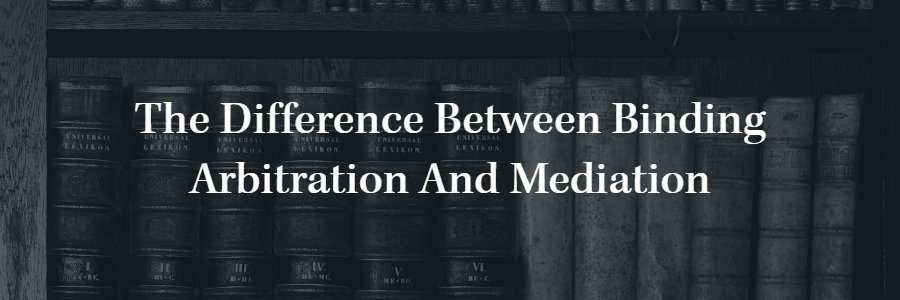Both “arbitration” and “mediation” are terms that are used regularly in the context of the legal system. Arbitration and mediation seek to reach a fair resolution of the legal matter at hand, but there are differences between the two, and these differences are important to understand.
The differences between arbitration and mediation revolve around the processes of solving the conflict. While both of these options are used to resolve an issue outside of the traditional core process, their methods of getting from A to Z will differ.
What is mediation?
Mediation is going to be a non-binding out-of-court legal process typically conducted by a single mediator that does not act as a judge for the case. The job of the mediator will be to facilitate discussion between the parties involved in hopes of guiding the parties to an eventual resolution of the dispute at hand. A mediator will not issue orders, find fault, or make any determinations in the case.
Mediation is non-binding. As mentioned, a mediator will not issue orders, find fault, or make a determination for the case. Therefore, the results of mediation may not bring a satisfactory conclusion to the matter at hand. Nothing in a mediation is bound by law, and it could very well be the case that the parties involved in mediation decide to move the case forward to trial.
What is arbitration?
Arbitration is going to be a binding process that replaces the full trial process. The arbitration will involve multiple people who will serve as “judges” in the case. The arbitrators will make decisions about the evidence and give written opinions. Often, there will be three arbitrators for a case. This will include one arbitrator chosen by each side. Then, those arbitrators will choose a third. Cases will be determined based on a majority vote. Arbitrators are often made up of retired judges, senior lawyers, or professionals in the field in which the case pertains to (accountants, engineers, architects, etc.).
The benefits of mediation and arbitration
Both mediation and arbitration have advantages and disadvantages. Perhaps the main advantage these processes have is that they save the time and expense of going to trial. Legal trials, regardless of the situation at hand, can be incredibly costly for individuals and small business owners. Another significant benefit of mediation and arbitration is that they allow for a greater degree of predictability in the outcome of the case.
The disadvantages of mediation and arbitration
Because mediation and arbitration take place outside of a traditional trial system, they are not bound to follow legal precedents when coming to their decision. None of the parties involved can count on legal precedent to determine what the result will be. Additionally, both parties may have trouble choosing a mediator or arbitrators that they are sure will be neutral and impartial.
Should you work with an attorney in these situations?
Anytime you have a legal matter that needs to be resolved, you should speak to a personal injury attorney about your case before working to reach any kind of settlement with the other parties involved. An attorney will be able to help with every aspect of your matter, and they will also be present during any arbitration or mediation hearings.
